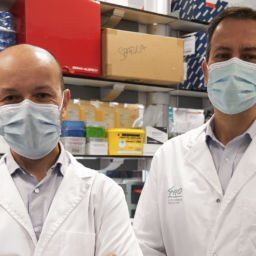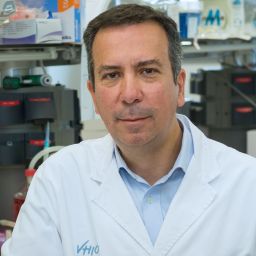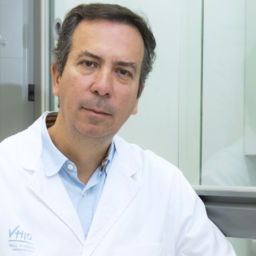
A new joint effort by the Hospital del Mar Research Institute, the Vall d’Hebron Institut d’Oncologia (VHIO), IDIBELL, and the Institut Català d’Oncologia, with researchers from the CIBER del Cáncer (CIBERONC), paves the way for a new approach to halting tumor proliferation. This involves combining different existing treatments to target cancer cells on three fronts and stop their progression. The study is published in the EMBO Journal.
Researchers have focused on the role of a specific protein, IKKα, known to act on other proteins to allow tumor cells to multiply and evade the effects of treatments. Currently, targeting this protein is not feasible, as general IKKα inhibitors can cause significant toxicity to patients. Therefore, researchers have sought other ways to act on it and have discovered how IKKα regulates two pathways related to tumor proliferation and chemotherapy resistance.
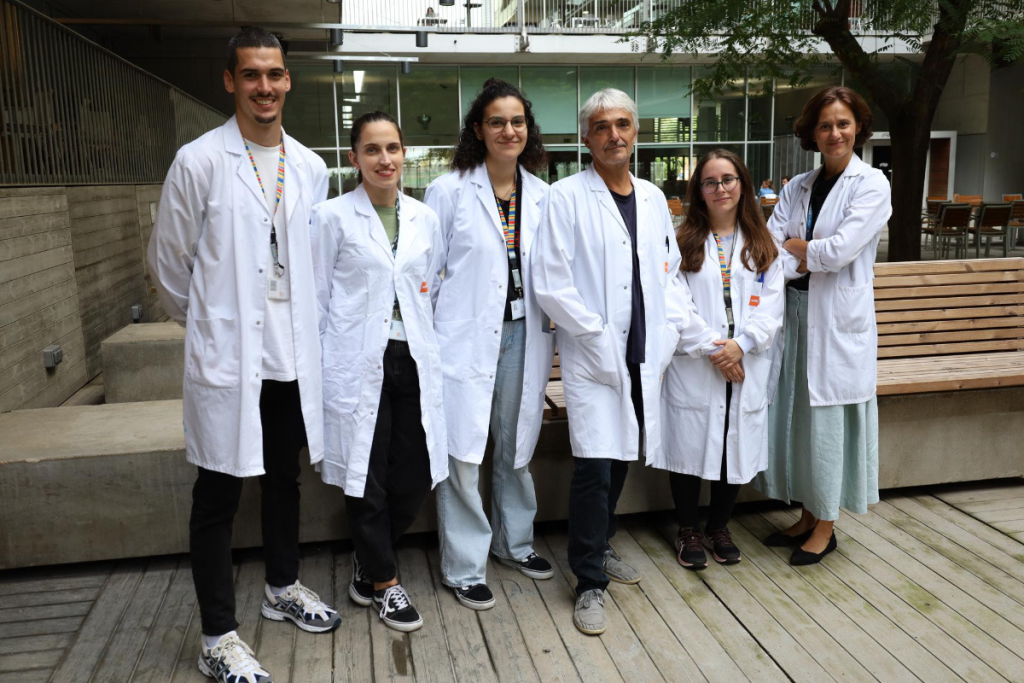
“In tumors, IKKα can regulate and activate different pathways linked to tumor proliferation and survival; consequently, identifying these pathways is essential for designing new therapeutic targets for cancer patient treatment”, explains Dr. Lluís Espinosa, coordinator of the Research Group on Molecular Mechanisms of Cancer and Stem Cells at the Hospital del Mar Research Institute and the lead coordinator of the study. The pathways identified in this study involve the protein BRD4 and the JAK/STAT signaling pathway, and some drugs can inhibit their activity. The research also involved the research teams of Dr. Joan Seoane from VHIO and Dr. Alberto Villanueva from the Institut Català d’Oncologia and IDIBELL, who contributed their expertise in conducting various experimental approaches. The Pathological Anatomy Service of the Hospital del Mar also participated in the analysis of human tumor samples.
New Functions of IKKα
Until now, there were no clues about IKKα’s ability to act on tumors through these two pathways. Cancer cells can proliferate by activating them while inhibiting cell death induced by chemotherapy treatments. Inhibiting both ways enhances the death of tumor cells in response to chemotherapy. This role has been confirmed in both animal models and organoids generated from colon and rectal cancer patient cells. However, the findings can be extended to other tumors with these activated mechanisms. It has been confirmed that “in tumors with a combined activation of both pathways by IKKα, inhibiting them together with chemotherapy is much more effective than individual treatments”, Dr. Espinosa adds.
This can allow for selecting treatment combinations that work together with chemotherapy to stop cancer. Using more than one drug also helps reduce the doses and treatment toxicity. Therefore, screening to identify tumors with these activated mechanisms could help identify patient candidates for new therapeutic approaches. Researchers have also identified the levels of IKKα and another protein, leukemia inhibitory factor (LIF), as a prognostic marker for colon and rectal cancer patients.
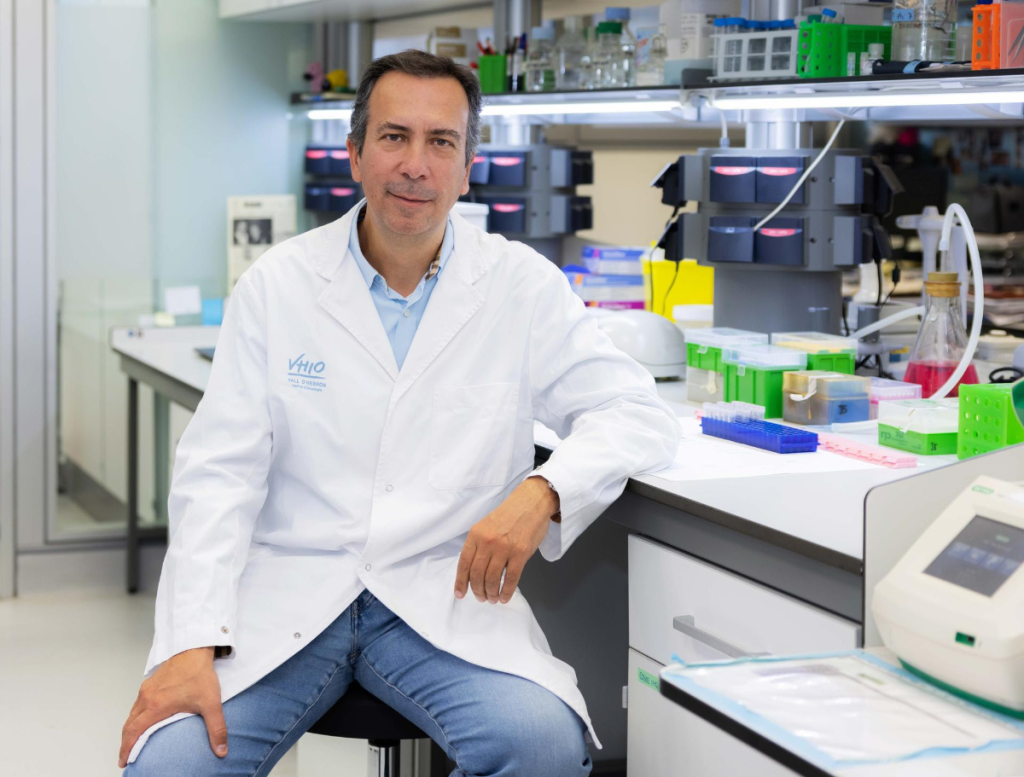 “LIF protein is involved in various physiological and pathological processes related to embryonic development, promoting an immunosuppressive environment and the proliferation of stem cells during embryonic development“, explains Dr. Joan Seoane, ICREA professor and head of the Gene Expression and Cancer Group at VHIO. “In some types of cancer, LIF levels are altered, so the tumor appropriates the functions of this protein to deactivate the immune system against tumor cells and increase the number of tumor stem cells, driving tumor growth and progression.”
“LIF protein is involved in various physiological and pathological processes related to embryonic development, promoting an immunosuppressive environment and the proliferation of stem cells during embryonic development“, explains Dr. Joan Seoane, ICREA professor and head of the Gene Expression and Cancer Group at VHIO. “In some types of cancer, LIF levels are altered, so the tumor appropriates the functions of this protein to deactivate the immune system against tumor cells and increase the number of tumor stem cells, driving tumor growth and progression.”
In this study, researchers describe that IKKα, in combination with BRD4, can induce LIF and promote chemoresistance in colon cancer cells. “The goal of chemotherapy is to damage DNA to induce the death of tumor cells. We have discovered that LIF may be involved in repairing this DNA damage, allowing the tumor cell to continue dividing and proliferating. In other words, LIF generates chemoresistance“.
Researchers have found that inhibiting LIF in colon cancer tumor cells prevents the repair of DNA damage caused by chemotherapy, making the therapy effective.
In this context, the laboratory led by Dr. Seoane has developed an antibody capable of blocking the LIF protein, which is being tested in a Phase II clinical trial for pancreatic cancer and could be useful in combination with chemotherapy as a therapeutic strategy against colon cancer.
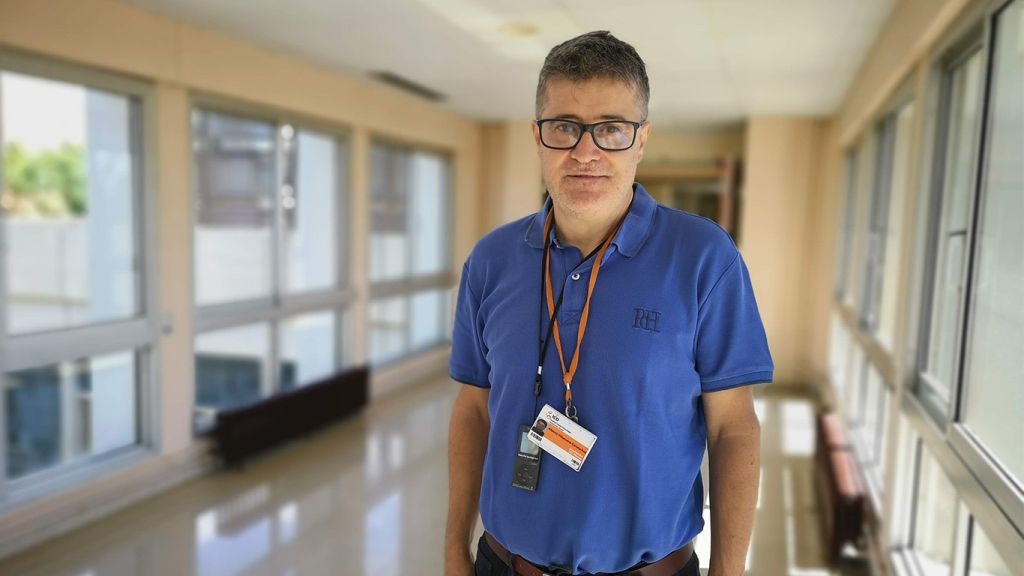 Reference Articl
Reference Articl
Irene Pecharroman, Laura Sole, Daniel Alvarez-Villanueva, Teresa Lobo-Jarne, Josune Alonso-Marañon, Joan Bertran, Yolanda Guillen, Angela Montoto, Marıa Martınez-Iniesta, Violeta Garcıa-Hernandez, Gemma Gimenez, Ramon Salazar, Cristina Santos, Marta Garrido, Eva Borras, Eduard Sabido, Ester Bonfill-Teixidor, Raffaella Iurlaro, Joan Seoane, Alberto Villanueva, Mar Iglesias, Anna Bigas & Lluıs Espinosa. (2023). IKKα kinase coordinates BRD4 and JAK/STAT signaling to subvert DNA damage-based anticancer therapy. 10.1101/2023.06.13.544711.


